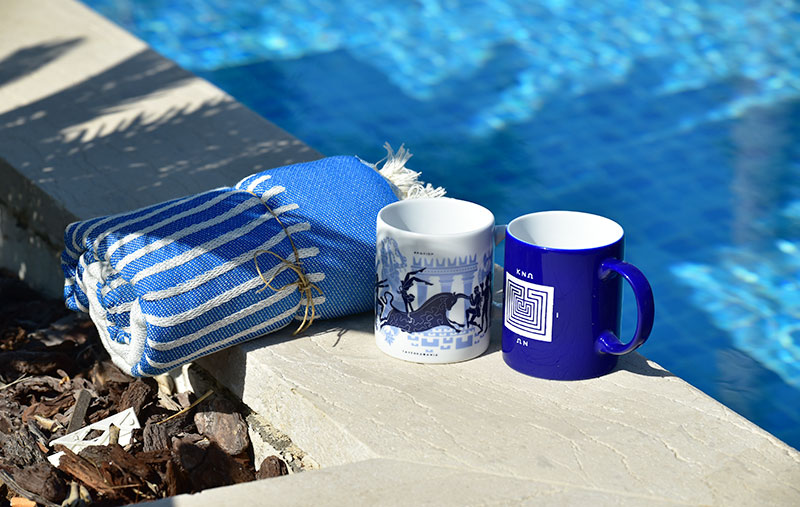In the affairs of a nation, geography is everything. People who live in the United States can afford to be relatively indifferent about the course of world events because they have the protection of two mighty oceans on their east and west coasts. Countries such as Spain, Portugal, England and Holland created global trade networks and vast empires by virtue of their location on Europe’s Eastern Atlantic Seaboard.
And Greece? Well, let Nikos Kazantzakis, author of Zorba the Greek, speak of Greece. He wrote that “Greece is placed in the middle; it is the world’s geographical and spiritual crossroads.” The great trade routes from Europe to Asia and back have been converging on Greece for hundreds, if not thousands of years.
How has this exposure to foreign visitors shaped the Greek character? For one, being a crossroads nation has made Greece one of the most hospitable places on the planet to foreign visitors. Even today, visitors to Greece feel this philoxenia, or friendliness to foreigners. For another, Greece has always been a net exporter of ideas and culture to the world around her. This clever, inventive race founded Western Civilization with its ideas of democracy, the value of the individual, the nobility of art, and the advancement of medicine and science.
By virtue of its unbroken, ancient culture, the Greek character is ancient and complex. But it also has some very simple and unique and definitive characteristics. One of these is the natural extroversion of most Greeks. Their curious, open nature lends itself to easily made friendships. They’ll ask you hundreds of questions- about your place of origin, about your travels, and about your impressions of their country, including the common question which requires fine diplomatic skills to answer, “which country do you think is better, yours or ours?”
In 1941, author Henry Miller contrasted the ease of befriending Greeks with the difficulty of befriending the French. From Miller’s The Colossus of Maroussi:
“Of my own experience I would say that there is no more direct, approachable, easy man to deal with than the Greek. He becomes a friend immediately: he goes out to you. With the Frenchman friendship is a long and laborious process: it may take a lifetime to make a friend of him.”
Greeks are a curious, restless, open-handed, open-hearted, hospitable people who, because of the factors mentioned above, and the blessings of the Mediterranean climate, have a deep appreciation and love for life that is so contagious that visitors never come away unchanged.
Greeks talk loudly, laugh loudly, enjoy large midday meals, love their afternoon naps, and then are alert and awake and full of social activity well past the midnight hour during the warmer months of the year. Greeks are a people very comfortable in their skin, and often neglect the more common Western norms of “space.” Anyone who has been casually but somehow politely nudged aside in a crowd in Greece can testify to this fact.
One of the most charming aspects of the Greek character is the frequent use of blessings and wishes. They go far beyond good day (kali mera), good evening (kalo vradi- which, strangely, can be heard any time after noon), and good night (kali nichta). Those, and “good luck,” are about the extent of it in English.
Here are a sample of Greek blessings:
Kalo mina! (“good month,” heard on the first of every month).
Kali xronia! (“good year,” which you can hear throughout the month of January.)
Gia sta heria sou! (literally, “health to your hands,” usually heard in appreciation for a wonderfully prepared meal, and also for any job well done.)
Me gia! (“with health,” a blessing of encouragement for a friend’s new possession, position, or any object or event new and pleasant.)
Kalo riziko! (litereally “good roots,”used for large items or events, such as a new house, a new business, or a new marriage. The idea is that may the new enterprise put down deep, unshakeable roots.)
Kali sinexia! (“good continuation,” for continued success in any task, whether digging a ditch or building a house.)
Kali diaskedasi! (good enjoyment, for someone engaged in a fun, entertaining activity.)
Na eisai kala! (literally, “behold, you are well,” which serves like the British “cheers” or the American “have a good day.”)
Na sas zisi! or zisate in plural (blessing for a new baby or a new marriage.)
Na to xaireste! (to parents of a newborn, or of a well-behaved child.)
Kali proodro! (good progress, for new graduates, or for anyone embarking on any kind of endeavor requiring success.)
I ora I kali! (literally “the hour is good,” which really means “I wish good things upon you.”)
Na ta ekatostisis! (a birthday wish meaning “may you live to be 100.”)
Kali arxi! (“good beginning,” sort of a precursor to “kali sinexia.”)
Perastika! (“may it pass,” a wish for the sick.)
Kalo Taksidi (“Have a good trip.”)
Greece, and the Greek people, differ from all other Mediterranean peoples because of her proximity to the Middle East and her role as a crossroads nation. Athens’ downtown open air food market and the nearby Monаstiraki Flea Market are alive with goods, hawkers of goods, and customers. The atmosphere hums and vibrates with the activities of commerce and often resemble places like Alexandria, Istanbul, or Damascus than some European city. You hear the strange to Western ears strains of rembetiko or laiki music with its lilting tones, as well as the high-pitched, rapid fingering of the bouzoukia that also often sound Middle Eastern.
With Greeks, as the saying goes, what you see is what you get. Life is lived with gusto, food and drink are heartily consumed, and singing and dancing can commence at the drop of a hat.
Having said that, there are depths to the Greek character that a casual visit cannot plumb. If you dig deeper into what makes a Greek, you’ll catch glimpses of an ancient people who have persevered with dignity and patience during centuries of hardship and occupation.
The dignity comes from an awareness of Greece’s accomplishments as a people: after all, as mentioned, this is the country that founded Western Civilization. In addition, there are the remarkable military feats of Alexander, and that transformation of the entire civilized world during the process known as Hellenization, when classical Greek ideals were successfully transplanted from Egypt to Babylon.
Never before or since has a land as small as Greece had such an outsized influence on the course of the world in so many areas and disciplines of life. England, perhaps, approaches Greece in terms of the degree a small country has affected world events.
Greek patience comes from the experience of being occupied for centuries by the Ottoman Turks, who are relative interlopers on the stage of the Aegean Seaboard. They didn’t start showing up in Asia Minor until sometime in the latter centuries of the first millennium, whereas the Greeks had been the predominant culture in the region for at least a thousand years at the time.
But the Ottomans waxed strong, whilst Greece, then part of the Byzantine Empire, waned in power, until the Ottomans overran the entire Greek peninsula in the 1400’s and stuck around for most of the next 500 years. In more recent events, Greece suffered through the depredations of the Nazi Occupation in WWII, and then, during the latter half of the 40’s, the Greek Civil War.
These elements then- the cultural accomplishments of ancient Greece, the military accomplishments of Alexander, which led to the Hellenization of the entire ancient world, the approximately thousand year existence of the Byzantine Empire, and, finally the 500 year occupation by the Ottoman Turks, are the raw material which forged the Greek character.
But despite these roots, Greeks can be an incredibly impatient people. Greeks have always had a restless, inquiring spirit, ready to explore, invent, or analyze the world around them. Greeks can shock with their intemperate remarks and short fuses, but on the other hand, they are by and large a non-violent people. You’ll see a fair amount of petty theft going on in Greece, but seldom do you hear of murder, rape, and other violent criminal activity. And if you do, it’s often at the hand of non-Greeks living in the country.
A woman alone, for example, feels far safer in Greece than she does in the US. If a female is considering a solo vacation in Greece, she needn’t feel too anxious about her personal safety.
The Greek tourism industry took off like a rocket in the 1960’s, and by now there is a great deal of infrastructure for a prospective visitor to consider. There are hundreds of family-friendly resorts to choose from, both on the mainland, and on the islands. Prices are surprisingly reasonable, and memories are there for the making.
Here at Grecomap, we invite you to explore your options for a relaxing holiday in Greece. We offer a plethora of travel options and discounts, and are ready to assist you in every stage of your vacation planning. Check out our website, which provides a complete analysis of places to visit and hotels and resorts to make your visit to Greece both memorable and comfortable.
Kalo Taksidi!












